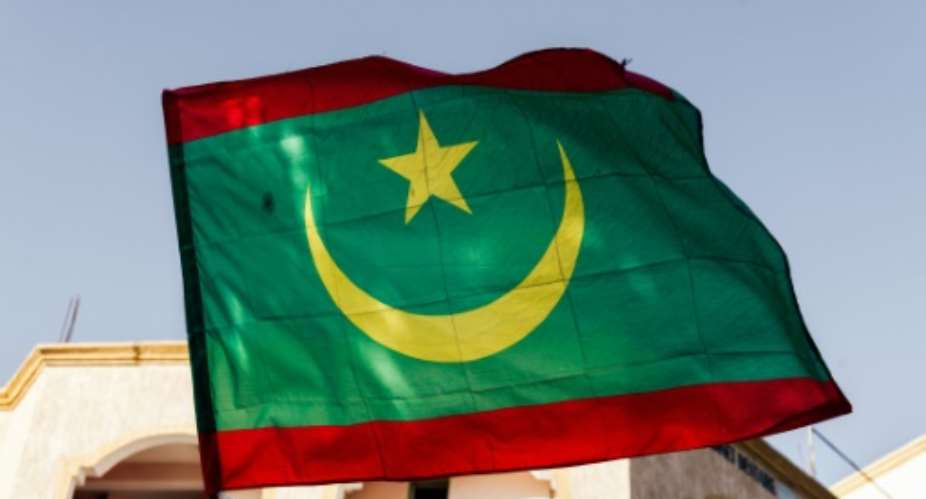Five facts about the Islamic republic of Mauritania, a vast desert nation in western Africa that will hold presidential elections on Saturday.
Rock in volatile Sahara
Over the decades, Mauritania has been embroiled in many regional and domestic conflicts.
Sharing a border with the long-disputed territory of the Western Sahara, Mauritania withdrew from its part of the territory in 1979, leaving Morocco to battle with the pro-independence Polisario Front.
For three decades, Mauritania was led by leaders who came to power in a successive series of coups. The first democratic transition of power came in 2019.
However, it also plays a key role as a rock of relative stability in the volatile region.
The West sees it as a valuable ally in the fight against jihadism in the Sahel which has spread across the region, but there has not been an attack in Mauritania since 2011.
Desert and gas
 Iron ore, transported across the country through the desert by train, is one of Mauritania's main exports. By MARCO LONGARI (AFP)
Iron ore, transported across the country through the desert by train, is one of Mauritania's main exports. By MARCO LONGARI (AFP)
Mauritania is one of the least densely populated countries in Africa, with much of its territory encompassing part of the Sahara desert.
One of its main exports is iron ore, which it transports across the country by means of the "Train du Desert" ("Desert Train"), which also carries passengers brave enough to face the 20-hour sweltering trip.
Since 1963, the 2.5-kilometre-long (1.6-mile-long) train has travelled daily at a pace of around 30 kilometres an hour (18 miles an hour) on a single railway line that runs 704 km across the Sahara desert, from the iron ore mines in northwestern Zouerat to the port at Nouadhibou on the Atlantic coast.
As well as iron ore, Mauritania also exports fish and copper, and this year should also become a producer of natural gas.
In 2018, Mauritania and Senegal signed a deal on the joint exploitation of a vast offshore gas field straddling their shared maritime border.
The project to develop the Grand Tortue/Ahmeyim gas field, which Senegal described as the biggest offshore gas deposit in West Africa, could be a game-changer for the economies of both countries.
The field aims to produce around 2.5 million tonnes of liquefied natural gas annually, and with this on the horizon, growth should "average 4.9 percent" over 2024-2026, according to the World Bank.
Modern slavery
Slavery casts a long shadow in Mauritania.
In 1981, it became the last country in the world to make hereditary slavery illegal and in 2007 criminalised the practice.
But in 2022, the UN special rapporteur on modern slavery concluded after a visit that the Sahel country still had work to do to cut out the practice.
Indeed, in the latest Global Slavery Index (GSI) from 2023, Mauritania ranked in the top three countries where modern slavery is most common, after North Korea and Eritrea.
According to the GSI, there are an estimated 149,000 people in modern slavery in Mauritania, or 32 per 1,000 inhabitants.
Divorce Mauritanian style
A majority Muslim country, Mauritania follows the strict Islamic sharia law, although since the 1980s sentences such as the death penalty have not been used.
But it is a real outlier when it comes to divorce, which is frequent in Mauritania and seen as an opportunity to have a big party.
Women take the lead in festivities to celebrate their status as newly available.
The practice has been taken up by younger generations of women too, with divorce party selfies all the rage.
Cultural time capsule
 Chinguetti is one of four UNESCO-listed ancient fortified towns in the heart of the Mauritanian Sahara. By MARCO LONGARI (AFP)
Chinguetti is one of four UNESCO-listed ancient fortified towns in the heart of the Mauritanian Sahara. By MARCO LONGARI (AFP)
Nestled in the heart of the Mauritanian Sahara are the UNESCO-listed quartet of ancient, fortified towns or "ksour": Ouadane, Chinguetti, Tichitt and Oualata.
In their heyday they were trading and religious centres, and now hold cultural jewels dating back to the late Middle Ages.
In the town of Chinguetti, for example, libraries hold some 6,000 Arabic manuscripts that are a time capsule of humanity, exploring themes including Islam, astronomy, law and mathematics.
But the manuscripts, as with much in Mauritania, face a modern threat: climate change is causing flash floods that threaten the old structures housing the documents.





 France bans election weekend rallies, extends curfew in New Caledonia
France bans election weekend rallies, extends curfew in New Caledonia
 Mauritanians vote in presidential election with incumbent tipped to win
Mauritanians vote in presidential election with incumbent tipped to win
 At least 30 killed in Kenya anti-government protests: HRW
At least 30 killed in Kenya anti-government protests: HRW
 Saglemi project rots while Ghanaians struggle for affordable housing
Saglemi project rots while Ghanaians struggle for affordable housing
 June 29: Cedi sells at GHS15.57 to $1, GHS14.59 on BoG interbank
June 29: Cedi sells at GHS15.57 to $1, GHS14.59 on BoG interbank
 Cedi will stabilize against US dollar after successful debt restructuring — Econ...
Cedi will stabilize against US dollar after successful debt restructuring — Econ...
 We can't allow unpatriotic people to inflict hardship on Ghanaians — Prof Gyampo...
We can't allow unpatriotic people to inflict hardship on Ghanaians — Prof Gyampo...
 ‘Significant initial victory’ — Ablakwa reacts to NPRA’s order halting SSNIT hot...
‘Significant initial victory’ — Ablakwa reacts to NPRA’s order halting SSNIT hot...
 It's unacceptable political party manifestos aren't out 5 months to election — P...
It's unacceptable political party manifestos aren't out 5 months to election — P...
 Hajia 4reall Breaks Down in Court, Pleads for Mercy: 'I Want to Make Amends
Hajia 4reall Breaks Down in Court, Pleads for Mercy: 'I Want to Make Amends
